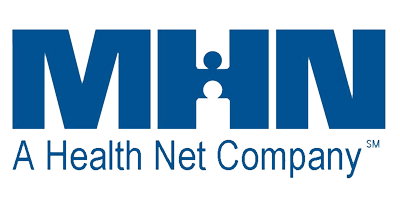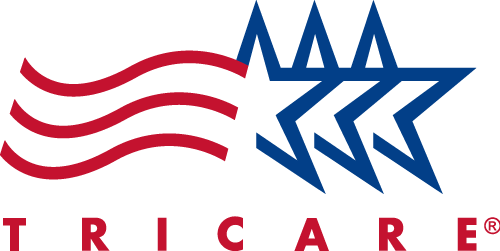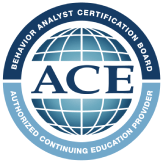Early Autism Services in Orange County, CA
Spectrum Behavioral Therapies provides early autism services and resources for children with developmental delays. Our service is uniquely designed for each child. We work with you to create a supportive learning environment for your child.

What Is Early Intervention Autism?
Early intervention in autism is when newborns to three-year-olds are enrolled in ABA therapy to address a child’s developmental delays. Several peer-reviewed studies show that children with early intervention autism do much better in social, communication, and development areas if they receive early intervention services before the age of 3.
Why is age so important in early autism services? It’s due to how moldable young children’s brains are. In scientific terms, this is called neuroplasticity. Essentially, as we get older, we develop patterns and habits that are hard to divert from. Young children don’t have such set patterns yet.
Early intervention with autism makes addressing and growing various developmental skills easier for your child. It will feel more natural to them compared to older children with their habits and patterns.
However, that doesn’t mean older children can’t benefit from ABA therapy; it just takes more time to see results.

Important Developmental Milestones
Are you wondering if your child's development is on track? Here are some typical developmental milestones we see in young children:
- Babbles
- Smiles at caregivers
- Likes to look at self in a mirror
- Responds to their name
- Imitates animal sounds/noises
- Begins to self-feed
- Enjoys simple games like peek-a-boo
- Uses simple gestures, like shaking head for “no” or waving
- Starts using items correctly; for example: drinks from a cup, brushes hair with comb.
- Demonstrates simple pretend play skills
- Follows one-step directions
- Pointing to show what they want
- Has a vocabulary of approximately 50 words
- Drinks from a cup without a lid
Helps undress themselves
- Notices when others are hurt/upset
- Sorts’ shapes and colors
- Says at least 2-word phrases (e.g., “eat cookie”)
- Answers simple questions
- Begins to include other children in play
- Mimics adults and older children
- Has two or more back-and-forth conversational exchanges
- Uses utensils during mealtime
- Asks “who,” “what,” and “where” questions
- Speaks well enough that most strangers can understand
- Follows two and three-step directions
Our Approach To Early Intervention Autism Services
Focus On The family
Our early autism services build better relationships and communication between parents, schools, and children. We include parents in all aspects of the ABA for children, from creating a unique ABA plan through each milestone. We provide parents with the skills and tools to maintain progress between sessions.
Parents can also use local resources to gain a deeper understanding of their child’s needs:
- Parent training gives families helpful knowledge and tools. They can use them to address their child’s needs at home.
- Developmental assessments are comprehensive. They help parents and the team identify their child’s strengths and areas for growth.


Our Early Start program’s curriculum aims to:
- Prepare children for lifelong learning. We do this by giving them skills and resources that transfer across activities. These skills will help them meet both current and future goals.
- Customize treatments to meet the educational and developmental needs of children with autism. The goal is to promote their cognitive and social growth.
- Help develop correct social interactions and relationships through Social Skills Training (SST).
- Use of cutting-edge technological tools to enhance communication, learning, and everyday skills.
- Plan and support move to a new school. Ensure smooth transitions between agencies and programs.
Multi-Disciplinary Approach
We provide complete support services for children with an autism spectrum disorder and their families. It offers ongoing guidance from a team of specialists, including a board-certified behavior analyst (BCBA).
Our approach also includes a speech therapist and an occupational therapist. They address a wide range of abilities and challenges through additional services.

Our services for children with autism are a great benefit for your child. Early autism services focus more on “readiness to learn” skills. They allow the child to learn from their environment (i.e., imitation, following directions, engaging with developmentally appropriate toys).
These skills are addressed with the ultimate goal for the child to meet developmental milestones, and then continue meeting further milestones as they come.
Direct ABA for children addresses more in-depth skills that follow a curriculum based on the child’s specific needs (i.e., learning levels of friendship for a child who does not demonstrate the concept of strangers vs. safe friends/families). Direct ABA also has a deeper emphasis on behavior modification.

The Autism Society of America believes autism programs should be outcome-based. This is to ensure agencies meet the individualized needs of each person with autism well.
We will work one-on-one with your child to improve their skills with daily tasks and social communication skills, such as:
- Toilet training
- Peer play
- Sustained Attention
- Communication
- Responding to others
- Reducing challenging behaviors Reducing Aggression, self-injurious behaviors, etc.)

Toilet Training
Peer Play
Sustained Attention
Communication
Responding To Others
Reducing Challenging Behaviors (aggression, self-injurious behaviors, etc.)
Community-based Skills
School-based Skills
ABA Therapy FAQs
We are here to help you with any questions you might have surrounding ABA Therapy.
Take the first step towards empowering your child's future.
Contact us today to learn more about our programs and how we can support your child’s development. Let’s make a difference together.










